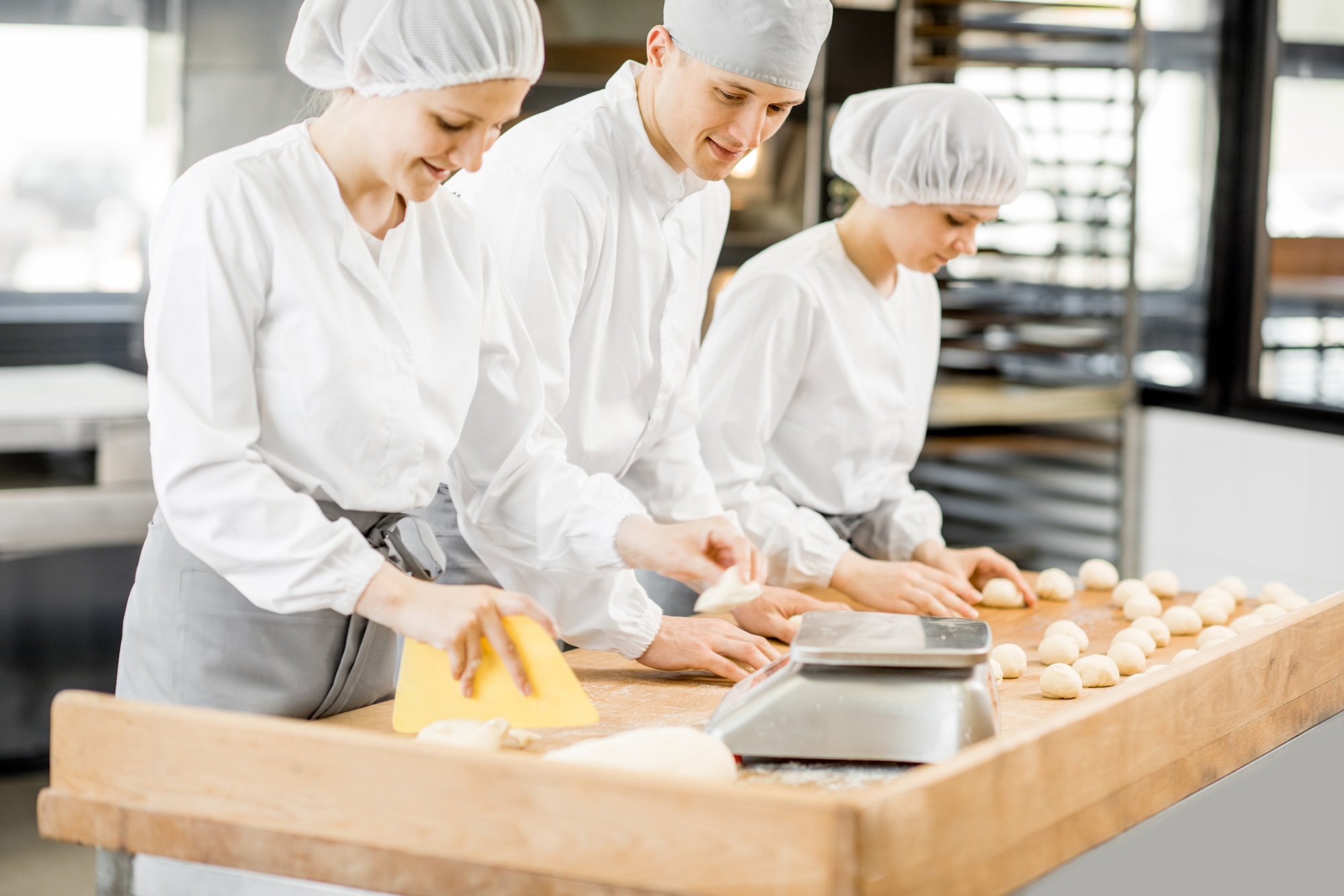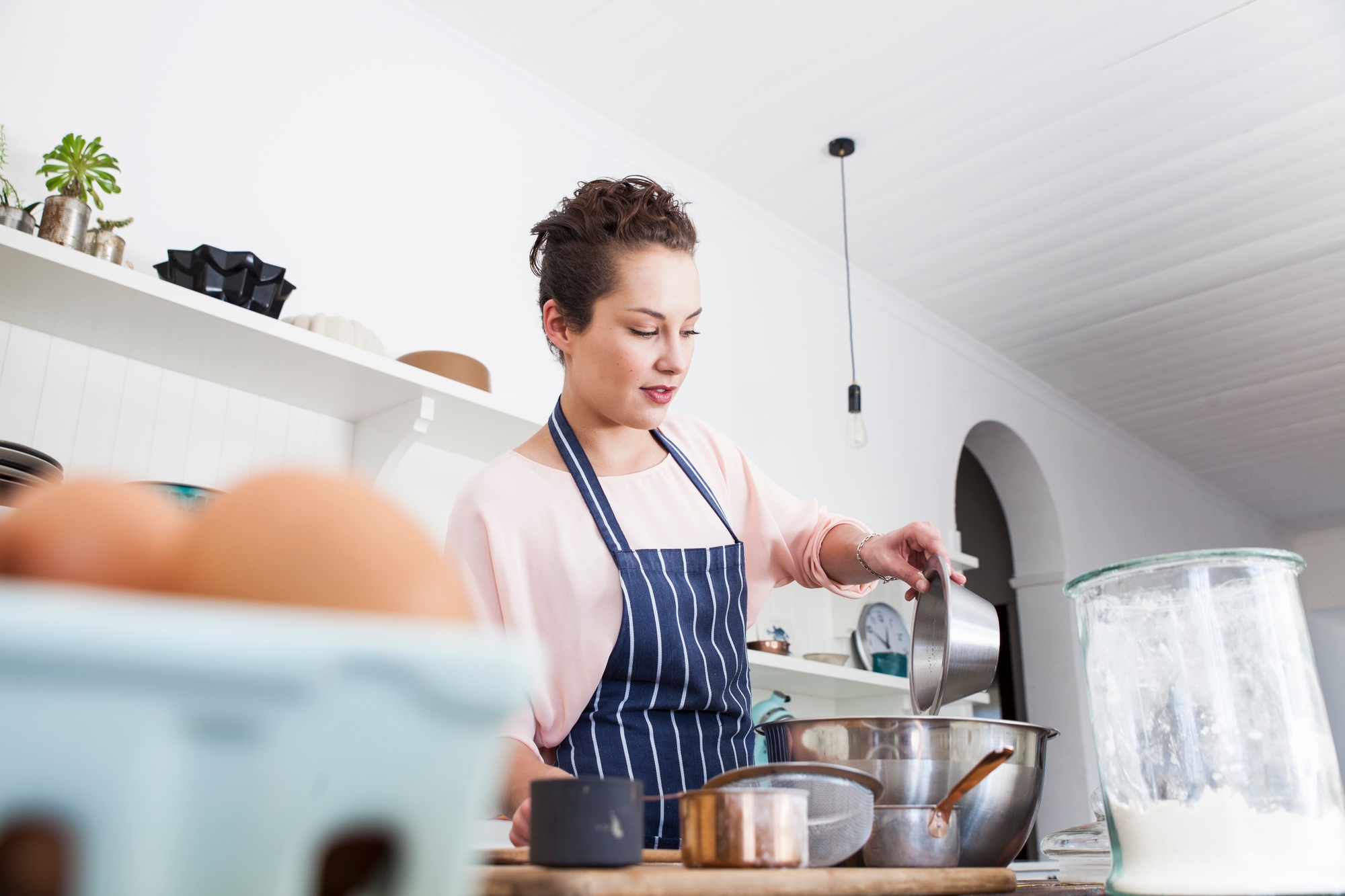Key Takeaways

- Understand Market Trends: Recognize the growing demand for health-conscious, personalized baked goods and leverage e-commerce for wider reach.
- Identify Target Audience: Cater to diverse customer segments, including young professionals, families, and event planners, to enhance engagement and increase sales.
- Master Essential Baking Skills: Focus on precision, patience, creativity, and effective business management to produce high-quality baked goods.
- Create a Business Plan: Outline your niche, financial projections, and growth strategies to provide a roadmap for your baking business.
- Comply with Legal Requirements: Obtain the necessary licenses and permits, and follow food safety regulations to ensure credibility and operational success.
- Establish a Strong Online Presence: Utilize a user-friendly website and social media platforms to showcase your products, engage customers, and implement SEO strategies for better visibility.
Are you ready to turn your passion for baking into a thriving business? Starting a baking venture can be an exciting journey filled with creativity and the sweet smell of success. Whether you dream of opening a cozy bakery or selling your treats online, the possibilities are endless.
Understanding the Baking Industry

The baking industry offers numerous opportunities for small business entrepreneurs. Understanding market dynamics and target audiences can significantly enhance your success.
Market Trends
Market trends in the baking industry reflect growing consumer preferences. Health-conscious options like gluten-free and organic products attract many customers. Additionally, the demand for personalized baked goods, including custom cakes and specialty items, continues to rise. E-commerce has transformed sales channels, allowing small business owners to reach customers directly online. Trends show that convenience, quality, and unique flavors drive consumer choices, which can guide your startup strategy.
Target Audience
Identifying your target audience is crucial for your baking business. Individuals seeking fresh baked goods often include young professionals and families. Event planners and businesses looking for catering services represent another key segment. You’ll find that social media users, especially on platforms like Instagram and Pinterest, respond well to visually appealing products. Tailoring your products to these groups enhances customer engagement and can increase sales opportunities. Understanding your audience’s preferences enables you to create relevant offerings that resonate with their needs.
Essential Skills for Bakers

Mastering key skills enhances your ability to succeed in a small business baking venture. Focus on precision, attention to detail, creativity, and effective business management to create high-quality baked goods that attract customers.
Precision in Measurements
Accurate measurement of ingredients is vital for achieving consistent results in baking. Precision affects taste, texture, and overall quality. Invest in quality measuring tools and develop meticulous habits to ensure each recipe is executed correctly.
Patience and Attention to Detail
Baking processes, such as proofing dough and monitoring rising times, demand patience. Attention to detail significantly impacts the final product’s quality. Ensure every step is performed accurately to enhance the baking experience and satisfy your customers.
Creativity and Innovation
Creativity differentiates skilled bakers from the rest. Experiment with unique flavors, textures, and presentations. Offering innovative baked goods can make your small business stand out from competitors. Use seasonal ingredients and trends to inspire new creations.
Baking Techniques
Mastering various baking techniques is crucial for delivering a diverse product range. Explore methods such as layering, frosting, and decorating. Practicing different techniques enables you to meet different customer preferences and expand your offerings.
Business Management Skills
Effective business management skills are key to running a successful startup. Develop a solid understanding of budgeting, marketing, and customer service. Know your target audience and adapt your strategies to enhance customer engagement and drive sales.
Creating a Business Plan

Creating a business plan is critical for your small business startup in the baking industry. A well-structured plan guides your operations and sets a clear path for growth.
Defining Your Niche
Defining your niche is essential for differentiating your bakery from competitors. Consider your unique offerings, such as artisan breads, gluten-free pastries, or vegan cakes. Analyze local market demands, and align your products with consumer preferences. By focusing on a specific niche, you can position your bakery effectively and attract your target audience, including young professionals and families.
Financial Projections
Financial projections provide insights into your bakery’s potential profitability. Calculate startup expenses, including equipment, ingredients, and packaging. Estimate monthly operating costs and forecast your revenue based on sales projections for different product lines. Use these figures to create budgets and set achievable financial goals. Regularly review your projections and adjust your strategies to enhance your chances of success in the competitive baking startup landscape.
Legal Requirements

Starting a baking business involves several legal requirements that ensure compliance and credibility. Address these key areas to operate effectively and avoid legal complications.
Licensing and Permits
Obtain necessary licenses and permits to legally operate your bakery. Secure a business operating license from your county or city to gain permission for your bakery’s operations. If you plan to operate multiple locations, acquire a separate license for each site. Additionally, register for a state tax ID number and set up a DBA (doing business as) or fictitious business name if applicable. This formalizes your business identity and streamlines financial transactions.
Food Safety Regulations
Adhering to food safety regulations is crucial in the baking industry. Follow guidelines set by local health departments to ensure safe food handling practices. Obtain a food handler’s permit and comply with regular health inspections to maintain food safety standards. Implement proper sanitation protocols in your baking processes to prevent foodborne illnesses and gain customer trust. Understanding these regulations positions your small business for success while safeguarding customer health.
Setting Up Your Kitchen

Setting up your kitchen is crucial for launching a successful small business in baking. Whether you choose a home-based option or invest in a commercial kitchen, each setup has its distinct advantages.
Home-Based vs. Commercial Kitchen
Home-based kitchens offer a cost-effective startup option. Using your existing space minimizes overhead costs. However, you must ensure compliance with local health and safety regulations. If your home kitchen meets these requirements, you can efficiently operate your small business from home. Commercial kitchens, on the other hand, typically provide more space and professional-grade equipment. If you anticipate high demand for your baked goods, consider leasing a commercial kitchen for scaling up production while maintaining food safety standards.
Equipment Essentials
Essential equipment forms the backbone of your baking operations. Focus on reliable tools to ensure quality and consistency in your products. Your list should include:
- Oven: Invest in a convection oven for even baking.
- Mixer: A heavy-duty stand mixer saves time and effort.
- Baking Pans and Trays: Quality pans and trays are vital for varied recipes.
- Storage Containers: Use airtight containers to keep ingredients fresh and organized.
- Cooling Racks: Proper cooling ensures baked goods retain their texture.
With the right kitchen setup and equipment, you can efficiently manage your startup, produce exceptional baked goods, and focus on growing your small business.
Marketing Your Baking Business
Marketing your baking business effectively is vital for attracting customers and driving sales. Implementing targeted strategies can help your startup stand out in a competitive market.
Building an Online Presence
Establishing a strong online presence is crucial for promoting your small business. Create a user-friendly website showcasing your baked goods and services. Include high-quality images and engaging descriptions of your products. Utilize social media platforms like Instagram and Facebook to share visual content, customer testimonials, and behind-the-scenes insights into your baking process. Regularly post updates, announcements, and promotions to keep your audience engaged. Consider utilizing search engine optimization (SEO) techniques to improve your site’s visibility. This approach increases your chances of being discovered by potential customers searching for local bakeries or specific baked items.
Networking with Local Businesses
Networking with local businesses enhances your marketing strategy. Forge partnerships with cafes, event planners, or restaurants that align with your offerings. These connections can lead to cross-promotion opportunities, broadening your customer base. Attend community events or farmers’ markets to showcase your products and interact with potential customers. Building relationships within the local community fosters trust and encourages word-of-mouth referrals. Consider joining local business organizations or chambers of commerce to network with other entrepreneurs and gain valuable insights into how to start a small business successfully.
Conclusion
Starting a baking business can be an exciting and rewarding journey. With your passion for baking and the right strategies in place, you can carve out a niche that resonates with your target audience.
Focus on honing your baking skills and mastering essential business management techniques. By understanding market trends and customer preferences, you’ll be well-equipped to tailor your offerings and stand out in a competitive landscape.
Remember to prioritize compliance with legal requirements and maintain high food safety standards. With a solid business plan and effective marketing strategies, you’re on your way to creating a thriving baking venture that reflects your creativity and dedication. Embrace the challenges and enjoy the sweet rewards of your hard work.
Frequently Asked Questions
What should I consider before starting a baking business?
Before starting a baking business, consider your target audience, market trends, and unique offerings. Understanding the demand for health-conscious options or personalized baked goods can enhance your success. Additionally, make sure to assess your skills, budget, and whether you’ll operate from a home kitchen or a commercial space.
Do I need a license to operate a baking business?
Yes, you typically need a business operating license and a state tax ID to legally run a baking business. Additionally, many states require a food handler’s permit and adherence to local health department guidelines to ensure food safety compliance.
What essential skills do I need as a baker?
Key skills for bakers include precision in measurements, creativity in product development, and attention to detail. Familiarity with various baking techniques and effective business management skills like budgeting, marketing, and customer service are also crucial for success.
How can I market my baking business effectively?
To market your baking business effectively, establish a robust online presence with a user-friendly website and active social media accounts. Utilize platforms such as Instagram for visual promotions and consider networking with local businesses to enhance community engagement and broaden your customer base.
What equipment do I need for a baking business?
Essential equipment for a baking business includes convection ovens, heavy-duty mixers, quality baking pans, airtight storage containers, and cooling racks. This equipment helps ensure efficient production and delivery of high-quality baked goods for your customers.
Image Via Envato: Image-Source, borodai, wichayada69, s_kawee, RossHelen, davidgyung



